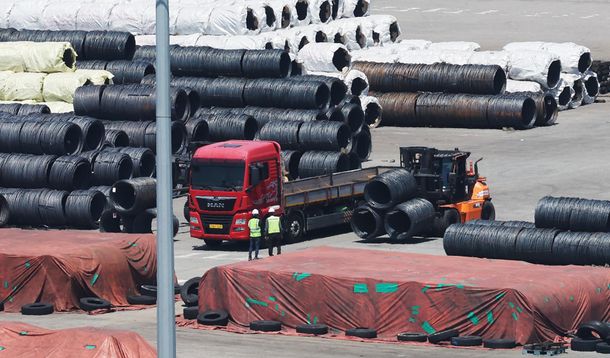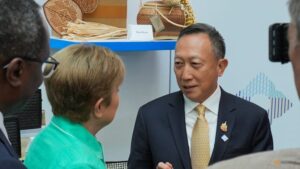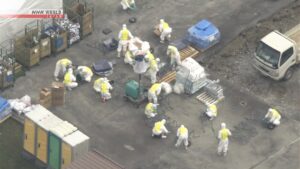-With steel exports to America taxed at 50%, Korean firms reassess supply chains and local production plans
With the U.S. tariff hike on steel and aluminum to 50 percent now in effect, Samsung Electronics and LG Electronics are facing increased supply chain complexities in their U.S. home appliance manufacturing operations.
U.S. President Donald Trump signed an order doubling tariffs on steel and aluminum imports Tuesday. The levy came into effect the following day, affecting most products using metal as a component.
Since steelmaking generally has low operating profit margins, a sharp increase in tariffs is likely to lead to higher product prices.
The tariffs come as a concern for not only steelmakers here but also home appliance makers including the two Korean companies, as steel and aluminum are major component of their washers, dryers and other appliances.
In the wake of Trump’s latest tariff, the two companies have been exploring ways to increase their U.S. production by relocating parts of their manufacturing lines around the world.Since 2018, Samsung Electronics has been assembling home appliances at its plant in Newberry, South Carolina, capable of manufacturing 1 million washing machines annually. After the Trump administration floated various tariff measures earlier this year, Samsung Electronics has been reviewing a plan to shift part of its dryer production from its plant in Mexico to the Newberry plant.
LG Electronics has also been taking a similar approach. Since 2019, the company has operated its first U.S. home appliance plant in Clarksville, Tennessee, producing 1.2 million washing machines and 600,000 dryers annually. In response to Trump’s tariff policies, LG is now considering relocating its refrigerator production line from Mexico to the Clarksville plant.
LG Electronics CEO Cho Joo-wan has said during a shareholder meeting in March that “the company has already secured space at its Clarksville plant in the U.S. to enable the production of refrigerators, ovens and other home appliances,” and the company also “plans to expand its production in the U.S.”



